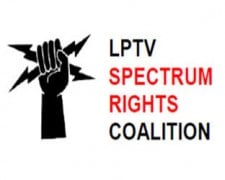 The FCC recently ordered a number of Class A television licensees to show cause why they should not be demoted to LPTV status, and sacrifice the rights and protections afforded to the higher license classifications.
The FCC recently ordered a number of Class A television licensees to show cause why they should not be demoted to LPTV status, and sacrifice the rights and protections afforded to the higher license classifications.
All eight of the Class As targeted by the FCC in this particular batch were missing public file information concerning their children’s education programming. In all eight cases, the FCC inquired about the omission on two separate occasions, and on both occasions failed to get a response.
It then order the licensees to show cause why they should not be declassified to LPTV status, and again they failed to respond.
So guess what? All eight are now officially LPTVs.
This could be a problem in advance of the coming effort to clear spectrum in the television space to make room for mobile broadband. Class A stations are afforded some protection, and as noted by the FCC in its just-released guidelines for channel sharing, they are allowed to participate in this process.
LPTVs have no such protection.
Here are the eight stations that have lost Class A status:
WKAG-CA Hopkinsville KY, licensed to Owen Broadcasting, LLC
KHCC-LP Corpus Christi TX, licensed to Minerva R. Lopez
KVHM-LP Victoria TX, licensed to Minerva R. Lopez
KINE-LP Robstown TX, licensed to Humberto L. Lopez, deceased*
KXTM-LP San Antonio TX, licensed to Humberto L. Lopez, deceased*
* The FCC contacted Carlos Lopez, Executor of the Estate of Humberto L. Lopez. An application to transfer the licenses to the Executor is pending.
KBBL-CA Springfield MO, licensed to EBC Harrison, Inc., Debtor-in-Possession
WBGR-LP Bangor/Deadham ME, licensed to Maine Family Broadcasting Inc.
KWDT-LP Corpus Christi TX, licensed to Clark Ortiz
RBR-TVBR observation: Frankly we are a little surprised the FCC limited its regulatory response to the stations in question, as serious as the response was. The FCC does not look kindly on public file violations, nor is it usually very patient with the failure to respond to Commission inquiries. We believe it could easily have tacked some particularly hefty fines, running into five-figure territory, on top of the declassification orders.
We know that a lot of the stations that have been named in the FCC’s ongoing Class A declassification project have been under financial duress. Perhaps that, along with the very real possibility that the timing of the downgrade could be a death sentence for a station in advance of incentive auctions may have influenced the FCC to leave its punishment at declassification alone.
All we know is that regardless of our intentions going forward, as a broadcast licensee we would not for one instant let an FCC correspondence go unanswered. We like our rights to remain as full as possible, and we especially like for our money to remain in our bank account, rather than being transferred to that of the US Treasury.




